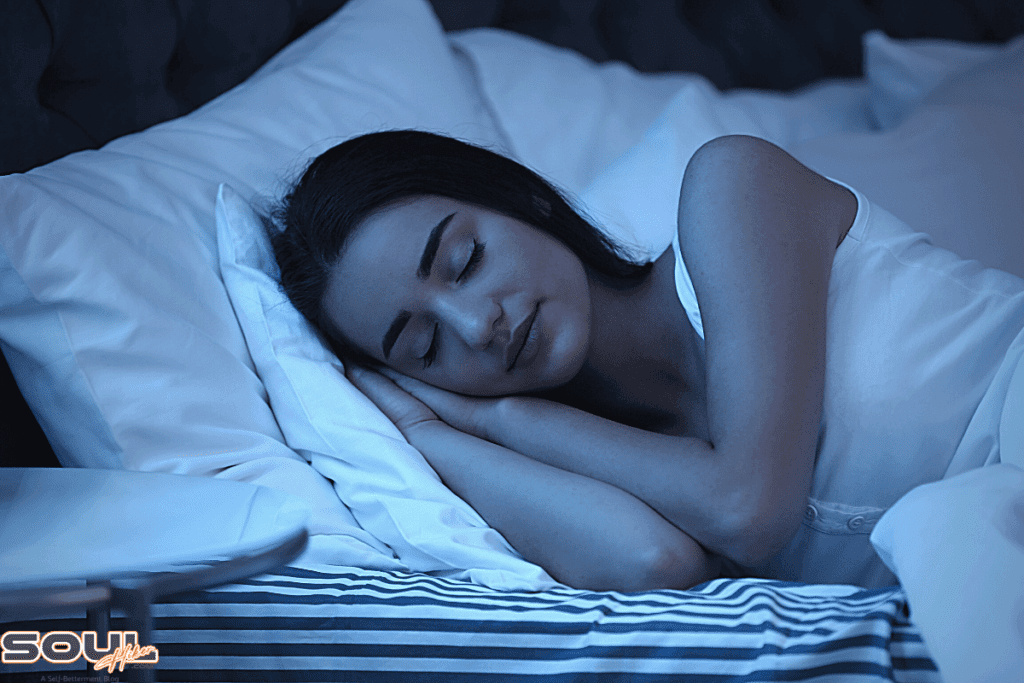Ever wondered about the spiritual implications of sleeping in front of a mirror? It’s an intriguing topic with roots in various cultures and belief systems. From Feng Shui principles to superstitions, there’s a lot of symbolism attached to mirrors, especially when it comes to their placement in your sleeping space. You might’ve heard some say it’s bad luck, while others believe it opens up portals to other dimensions. It’s fascinating how such a common household item can stir up such diverse opinions.
Table of Contents
The Significance of Sleeping in Front of a Mirror
Unraveling the spiritual implications tied to the act of slumber near a mirror takes us across various cultures and timelines. It’s important here, to focus on the historical beliefs and psychological interpretations surrounding this ordinary household item turned spiritual conduit.
Historical Beliefs and Superstitions
The symbolism of mirrors finds its place in numerous cultures and religions across the world. In the mystical realm of Feng Shui, mirrors are equipped with guidelines designed to amplify their powerful, energy-reflecting properties.
Mirrors reflect energy, and sleeping in front of a mirror might disrupt your energy flow during your resting hours. There is a firm belief that mirrors should not face your bed as it might lead to amplified worries and accumulated stress.
The traditional Feng Shui school states a mirror facing the bed could instigate a sense of being watched, pushing one into the unsettling dimension of discomfort and restlessness. Furthermore, industry experts believe that this setup virtually opens a pathway into the otherworldly dimension, introducing unwelcome entities while you’re asleep.
In certain cultures, mirrors are draped or covered during sleep or in times of mourning. It’s believed that a mirror can trap the soul of the deceased, offering an unsettling narrative attached to this common household item.
Psychological Interpretations

Switching gears from superstition to science, one can’t overlook the psychological implications associated with sleeping in front of a mirror. Mirrors have long been a tool for contemplation and self-observation, boosting one’s consciousness about oneself.
Sleeping within the reflection of a mirror could amplify self-awareness to unsettling levels, potentially interfering with sleep patterns. The sight of your reflection during a midnight wake-up call might trigger overthinking, eventually fostering insomnia or anxiety.
So, the practice of sleeping facing a mirror doesn’t just have spiritual overtones; it extends into the realm of psychology as well. Consider the placement of mirrors in your bedroom carefully, not just from a design perspective but also considering their psychological and spiritual undertones.
Effects on Spiritual Energy
Your sleeping environment matters. The arrangement, the ambiance, and even the placement of mirrors have demonstrated considerable influence on individuals’ spiritual energy. Sleeping in front of a mirror could significantly amplify this energy, affecting your dreams and pushing you to confront your inner self more intensely.
Amplification of Dreams

Dreams. They are your subconscious mind’s way of processing your daily experiences, anxieties, and aspirations.
When you sleep in front of a mirror, it’s believed that your dreams could get a potent energy boost. The mirror is said to amplify the energy flow in the room, and since your subconscious mind is at work in your dreams, this heightened energy can make your dreams more vivid or intense.
Science may not fully back this claim, but many cultures across the globe hold a firm belief in this mirror-related dream amplification.
Reflection of Inner Self
The mirror’s reflective properties are often symbolic, relating to our introspective capabilities. Sleeping in front of a mirror could serve as a subtle reminder for self-reflection.
This could lead to enhanced self-awareness, both waking and dreaming. It might push you to confront matters you may have otherwise ignored. It may prompt you to address unresolved issues or milestones in your life that you’ve been brushing aside.
In this way, the mirror reflects your physical image and resonates with your deepest thoughts and feelings.
Finally, be mindful of this doubled energy, as it can be a powerful tool for introspection and personal growth. And remember, the placement of mirrors in the bedroom can have implications beyond just design aesthetics.
Using Mirrors For Spiritual Rest
So, you’ve journeyed through the spiritual implications of sleeping in front of a mirror. It’s clear that mirror placement isn’t just about aesthetics, it’s also a matter of spiritual energy and self-reflection.
The mirror’s ability to amplify dreams and provoke introspection can be a powerful tool for personal growth. It’s your bedroom, your sanctuary. Be mindful of where you place your mirror. Harness this knowledge to create a space that not only looks good but also feels right, spiritually.
Remember, it’s all about balance and harmony in your personal space.
Frequently Asked Questions
How can a mirror affect dreams?
Due to their reflective and amplifying properties, mirrors can intensify dreams. This can lead to vivid and memorable dream experiences.
What should I consider about mirror placement in my bedroom?
When it comes to mirror placement in the bedroom, consider both its design impact and potential psychological and spiritual implications. It might lead to personal growth and self-understanding.
